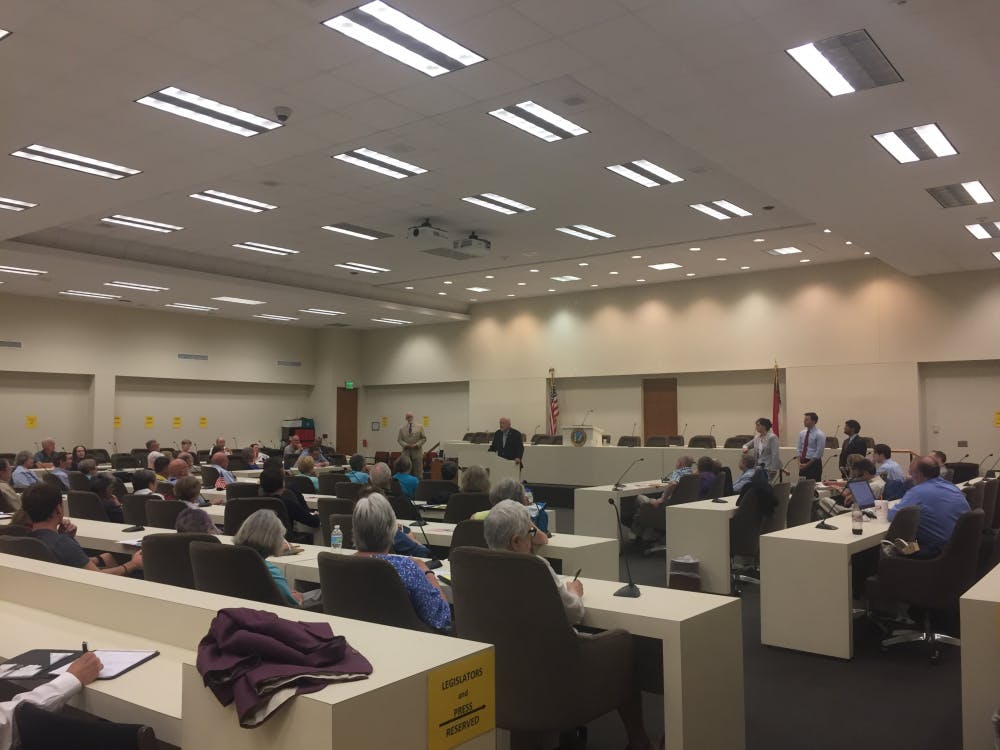On Monday, the U.S. Supreme Court upheld a lower court’s ruling that found North Carolina’s legislative districts were racially gerrymandered in 2011.
Though the Court affirmed the ruling that the gerrymandering was racially motivated, it was critical of an NC federal district court's order that special elections be held in 2017 to fix the gerrymandered districts. Neither documents were signed by any of the justices, and no dissents were noted.
That same day, Common Cause N.C. held a public hearing on gerrymandering to support a bill that would create a nonpartisan redistricting commission in the NC legislative office building.
A bill to fix the gerrymandering issue was introduced with 39 bipartisan cosponsors from the NC House in February, but it has not been brought to the committee yet.
Common Cause NC, a nonprofit and nonpartisan organization, held a public hearing in the NC legislative office building in Raleigh to draw attention to the bill.
After the Supreme Court ruling, Bob Phillips, director of Common Cause, said in a statement that the bill would allow for fair, nonpartisan redistricting by creating an advisory commission independent of the party politics of the General Assembly.
“This common-sense reform would spare our state from prolonged court battles and instead give North Carolina citizens greater confidence in the integrity of our elections," he stated.
Mitch Kokai, a senior political analyst at the conservative John Locke Foundation, said his organization has supported the creation of an independent redistricting system for years.
“Just because lawmakers can draw election maps the way they have for decades doesn’t mean they should,” he said. “A fundamental principle of our representative government is popular sovereignty. People should choose their elected representatives, not the other way around.”




